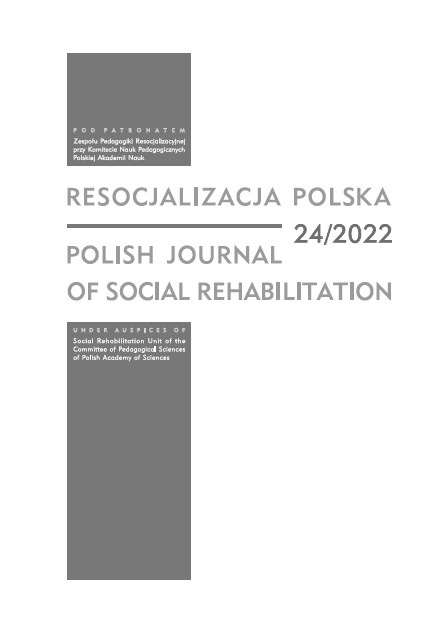Perception of risk by offenders. Relevance to resocialisation interventions
Perception of risk by offenders. Relevance to resocialisation interventions
Author(s): Agnieszka Tajak-BobekSubject(s): Social development, Criminology, Sociology of Education, Pedagogy
Published by: Fundacja Pedagogium
Keywords: risk; criminality; cognitive distortions; resocialisation;
Summary/Abstract: The paper presents a theoretical elaboration and research results concerning the meaning and assessment of risk in criminal decision-making by perpetrators of economic crimes, offences against the person, and offences against property, including repeat offenders and first-time offenders. The results presented are a fragment of wider qualitative-quantitative research which concerned the characteristics and determinants of the criminal decision-making process. The paper presents the results of research in which the qualitative methodology was used with the application of the method of in-depth interview with elements of narrative interview. The qualitative analysis included 85 specifically selected respondents. The survey was conducted in 6 correctional facilities in Poland. The study revealed the great importance of the perception of risk associated with crime and illegal activities. As the qualitative analysis shows, the picture of risk before committing a crime is underestimated due to a number of factors. Numerous cognitive distortions appear in the narratives of inmates, which should become the subject of further empirical analyses and the basis for designing prevention and resocialisation interventions.
Journal: Resocjalizacja Polska
- Issue Year: 24/2022
- Issue No: 1
- Page Range: 227-245
- Page Count: 19
- Language: English

